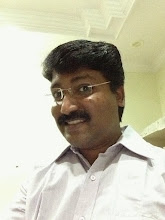Some things in life are optional, and some things in life are mandatory. Taking your next vacation to the Caribbean is optional. Building a personal library and becoming an excellent reader is mandatory. It is no longer something you can choose to do or not do. It is absolutely essential and indispensable for your success.
A great many people do not read very much. Fifty-eight percent of adult Americans never read a nonfiction book from cover to cover after they finish school. The average American reads less than one book per year. In fact, according to a Gallup study of the most successful men and women in America, reading one nonfiction book per month will put you into the top 1 percent of living Americans.
It takes regular, persistent reading and studying for you to improve, to move to the front of your field. It is not optional.
There are a variety of reasons why people don't read as much as they should. One is that probably 50 million Americans have been graduated from high school with poor reading skills.
Another reason why people don't read is because they have not been told how important reading is. Lifelong learning, lifelong reading is the minimum requirement for success in any field today. If you are in sales, management, service, administration or any other field that relies on the written word to convey information and data, your ability to read well is absolutely critical to your success.
Some people don't read because they are simply lazy. They are surrounded by so many distractions, especially television, radio, socializing and other activities, that they just never get around to doing any serious reading. They are so busy and caught up in day-to-day activities and amusements that they put off reading and then never get around to it. If continued, this pattern could have devastating consequences.
Another reason why people don't read is that they probably are not working in the right field. One of the best tests for compatibility with your work is your desire to read and learn more about it. If you are doing the job that is right for you, you will naturally be eager to read everything that you can possibly find about your field. You will want to get better and better. You will be hungry for new knowledge. You will be determined to become excellent. And every single bit of new information motivates and stimulates you and makes you excited about learning even more.
However, if you are in the wrong field, you will look upon reading about it as drudgery. If the reading and studying is a required condition of your job or profession, you will do it, but only under duress. You will want to get it over with, like a visit to the dentist. If, for any reason, you are not eager to learn more about what you are doing, it could very well be that you are wasting your time and your life in the wrong field.
The last great obstacle to regular reading and continuous learning is that most people have been brought up with what we might call the old paradigm, the outdated way of viewing education. It's likely that as you grew up, education was looked upon as something that was done to you by other people. For the first 18 years of your life, you went off to school and education was done to you as though you were a passive object. Even when you went to college, you signed up for the courses that were recommended, you learned the subjects that were required, and you took the exams that were given. When you came out, you were the product of an education. It was almost as though the education had just happened to you, while you merely went along and did your share at the right time.
However, after you finish school, you are responsible for your education. From that moment onward, you are responsible for buying your books, planning your courses of study, learning your subjects and continually upgrading your skills. It's not the responsibility of anyone else. You are in charge. It's all up to you.
Many people think that it's up to their company to educate them if they need additional training. Well, if your company provides training, you should take every minute of it that you can get. But if it doesn't, and most companies don't, you are still solely responsible for maintaining and increasing your value through continuous reading. There is no other way.
It may take a week, a month or a year to become a better reader. It may take even longer. But it doesn't matter. Your becoming an excellent reader will kick open doors of opportunity for you that you cannot now imagine.
Second, if you are already a good reader, or when you become a good reader, learn to speed-read. The Evelyn Wood Reading Dynamics program is probably the best that has ever been developed. Also, many communities throughout America offer speed-reading classes. Speed-reading is like touch-typing. In typing, you can use the hunt-and-peck method all your life, or you can learn how to do it right and increase your speed to 50 or 60 words per minute. In reading, you can take your speed from 50 or 60 words per minute up to 300, 400, 500 or even 1,000 words per minute, with no loss of comprehension. Speed-reading courses are absolutely essential to the success of really ambitious men and women today.
Third, build a personal library. Although public libraries are extremely helpful for research, you should buy your own books. People often ask me what books they should buy. To decide this, you can use the Law of Relative Importance. Buy the books that are most important to your life at this moment. The key word here is relevant. Adults learn best when what they are studying is extremely relevant to their needs, their work, their life, and their present situation. If you read material that is not relevant to what you are doing, you will find it difficult. You will not be drawn to the material, and you will forget most of it as you go along. But when you read material that is both relevant and applicable to your work, your mind sparkles with all kinds of ideas on how you can use this new information to be more effective. The prospect of learning new methods and techniques that you know will improve your life is both exciting and highly motivating.
Next, in building your own library, ask the most successful people in your field what books they would recommend. Then, go straight to the bookstore and buy them.
One of the marks of the professional, and professionalism is a state of mind, is that he has a library in his field. If you are in sales, you should have a library of sales books. You should be reading at least one hour per day in sales, one book per week, 50 books per year. You should be a consistent, persistent student of your craft. You should know more about the field of selling than anybody within 500 miles does. You should set a goal to become so knowledgeable about your field that you would be able to give advanced classes in your profession within a few years. With this idea as your guiding star, you will find yourself learning and remembering far more than you would if you were just browsing through the material.
Should you buy hardcover books or softcover books? I recommend that you purchase any book, of either kind, that can help you. Some books cost $20 to $30. The average person complains that he can't afford such a book. The superior person recognizes that the information contained in that book can save him a year or two of hard work. Remember, it may take an author 10 to 20 years to learn his subject. It may take him two to three years to write a book on it. It then may take one to two years to get the book published. By paying a few dollars for a book, you probably are getting the results of 20 or 25 years of effort by one of the smartest people in your field.
Never scrimp on your education. It is one of the most damaging things you could ever do.
Get some good bookshelves, and begin categorizing your books by subject. Have a section on sales. Have a section on management. Have a section on family and child raising. Have a section on personal motivation and success. If you like novels, have a section on fiction, or on history.
Organize your sections in alphabetical order, either by the title of the book or by the author. You don't have to make it too formal or structured. The point is to set up your library in such a way that you pretty well know where each book is, you know whether or not you have a book, and you know where to go to get a piece of information when you need it.
Once you've bought a book, read it with a red pen in hand, underlining and making notes at every key point you find. If you read a book twice, use a different-color pen to underline points you may have missed the first time.
I have books that I have read 10 or 20 times and that look like rainbows from page to page. They are literally covered with all kinds of colors and marks. Needless to say, the information and ideas in those books has soaked so deeply into my psyche that I can recite much of the material in my dreams.
You need to read an hour or two each day just to keep current with your field. You need to read newspapers, magazines, newsletters, correspondence and other materials. But you don't get ahead with regular reading. You must invest in the future while you keep current with the present. If you want to get ahead, you must read things that give you new ideas and insights, not merely things that confirm what you already know.
Becoming a proficient and persistent reader may not be easy to do so, but it's certainly possible. The future does belong to the competent. Those who know more will always win out over those who know less. The more you read, the better you get. The more you learn, the easier it is for you to learn. And the more you challenge your mind, the smarter you get.
Friday, March 26, 2010
Subscribe to:
Post Comments (Atom)



No comments:
Post a Comment